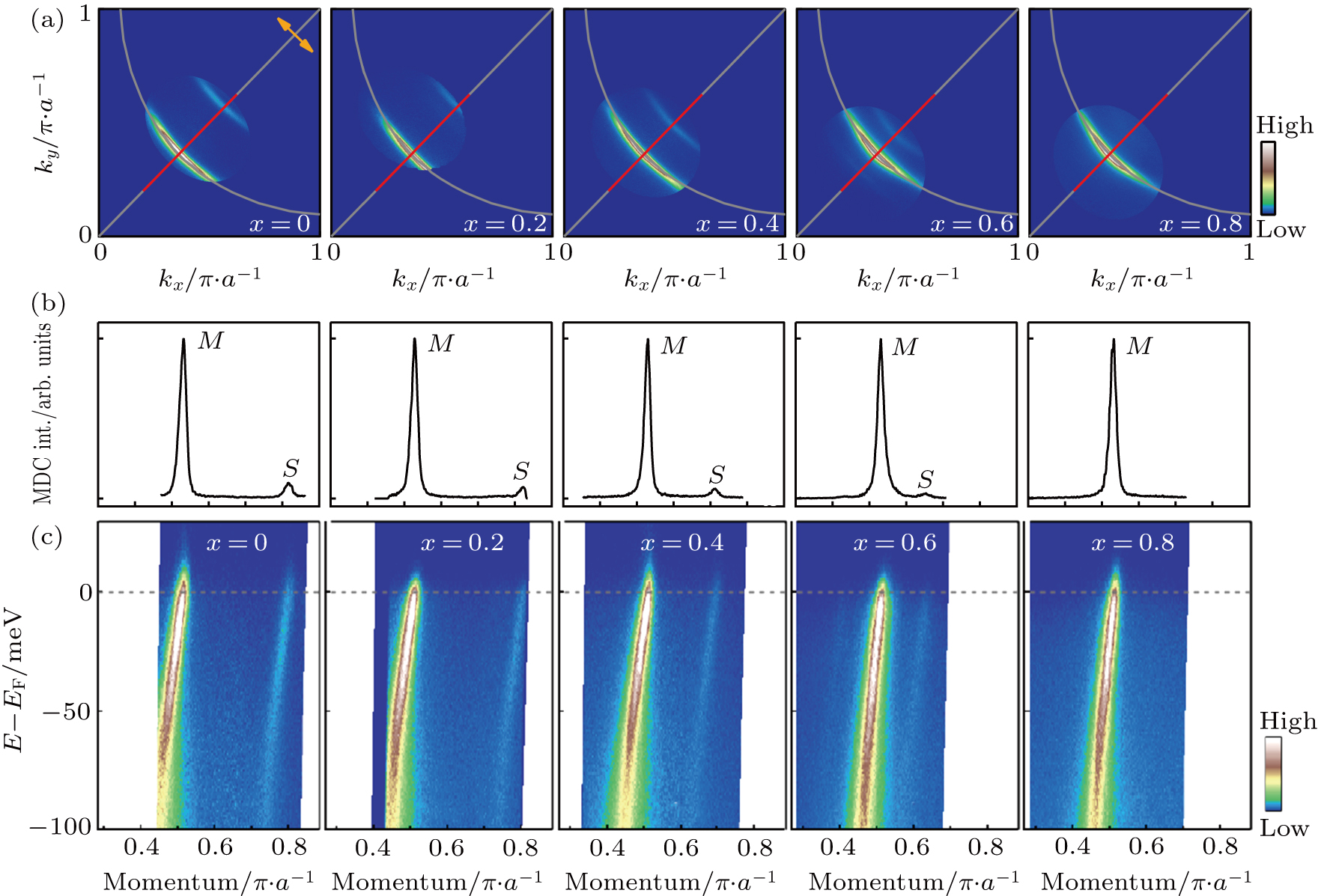Evolution of incommensurate superstructure and electronic structure with Pb substitution in (Bi2−xPbx)Sr2CaCu2O8+δ superconductors
Fermi surface mapping and band structure of Pb-Bi2212 measured with 6.994 eV laser. (a) Fermi Surface mappings for Pb-Bi2212 with various Pb contents (left to right panels correspond to x = 0, 0.2, 0.4, 0.6, and 0.8, respectively) measured at a temperature of 25 K using a laser of photon energy 6.994 eV. Here x = 0 sample is optimally doped Bi2212 with Tc=91 K. Each image is obtained by integrating measured spectral weight within [−1, 1] meV energy window with respect to the Fermi level as a function of kx and ky. The grey solid lines are the guides to the main Fermi surface. Orange double arrows represent the electric field vector direction of the incident laser. (c) Band structures measured along the nodal direction for the five samples. The locations of the momentum cuts are marked in (a) by red lines. The corresponding momentum distribution curves at the Fermi level are shown in (b). Two peaks are observed where M peak represents the main band while S peak represents the superstructure band.
